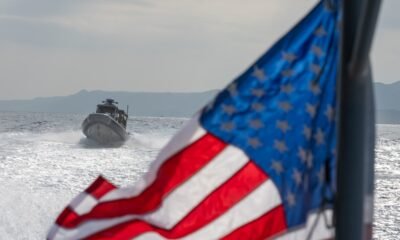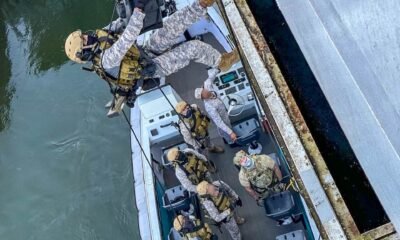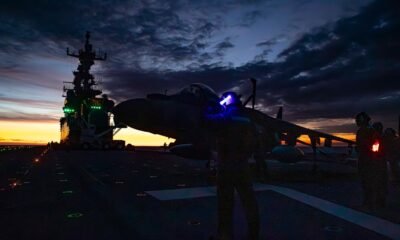All Navy Categories
US Forces Team Up with Australia and Allies for Thrilling Exercise Kakadu 2024
DARWIN, Australia – Maritime forces from the Royal Australian Navy (RAN), U.S. Navy (USN), and nine other partner and ally nations commenced Exercise Kakadu 2024 near Darwin, Australia, on September 8.
Occurring biennially, Kakadu is RAN’s primary international engagement activity, aimed at enhancing interoperability in the maritime and air domains, while offering vital training for maritime security and surveillance.
This year’s exercise, set between September 9-20, involves 13 warships and aircraft from the navies and air forces of 11 countries. Concurrently, a commanders’ conference with military leaders from over 30 countries is being held. Over 3,000 military personnel are converging in the Darwin area.
Vice Adm. Mark Hammond, Chief of Navy Australia, stated, “Kakadu is the largest and most significant international exercise hosted by the Royal Australian Navy. It deepens relationships and interoperability between participating armed forces. Australia, like our neighbors, derives prosperity from access to the sea – assured by a strong Navy and strong partnerships.”
Hammond emphasized, “This year, the focus is on interoperability with greater integration of our international partners in all aspects of the exercise.”
The RAN is represented by Anzac-class frigates HMAS Stuart (FFH 153) and HMAS Warramunga (FFH 152), a Collins-class submarine, and aircraft from the Royal Australian Air Force. The U.S. Navy’s Arleigh-Burke class guided-missile destroyer USS Dewey (DDG 105) is also participating.
Vice Adm. Fred Kacher, commander of U.S. 7th Fleet, remarked, “Thank you to the Royal Australian Navy for bringing this group of nations together to conduct important training. The work we are doing here provides our navies a valuable opportunity to advance interoperability and address shared maritime security challenges.”
The exercise will progress from a harbor phase focusing on planning, simulation, and cultural exchange into a sea phase where ships and aircraft will form multinational task groups. These groups will practice various scenarios, culminating in a task group free play.
The U.S. 7th Fleet regularly trains with partner and allied navies to refine operational proficiency and enhance crisis and contingency response capabilities, ensuring stability and security across the Indo-Pacific region.
USS Dewey is assigned to Destroyer Squadron (DESRON) 15, the Navy’s largest forward-deployed DESRON and the primary surface force of the U.S. 7th Fleet.
The U.S. 7th Fleet, as the Navy’s largest forward-deployed numbered fleet, routinely engages with allies and partners to maintain a free and open Indo-Pacific region.




















